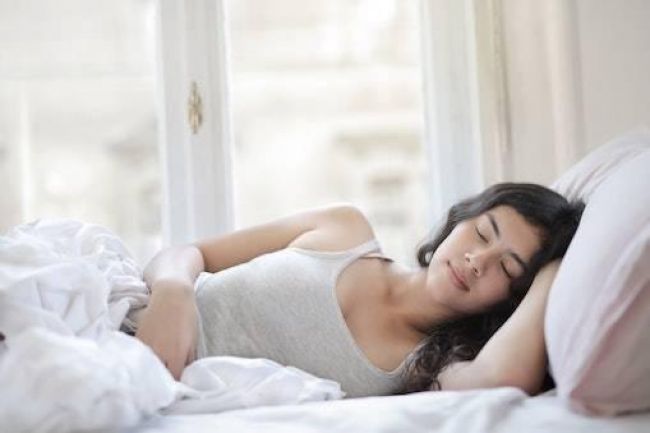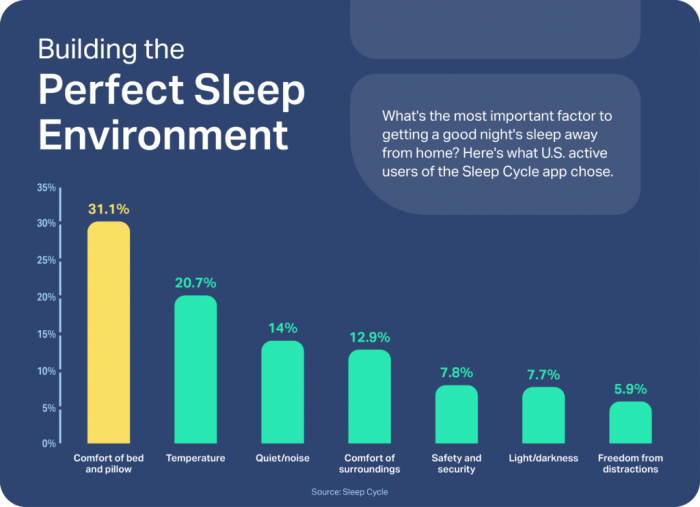Tips & Tricks
6 min read
Do Luxury Homes Deliver Better Sleep? What the Data Says


Sleep is not a luxury—it is a necessity. But what if your luxury home could actually enhance your sleep quality? With sprawling layouts, custom HVAC systems, soundproofing, and spa-like master suites, luxury homes are designed with comfort in mind. But how much of that translates into better sleep? Let’s dig into the data, the science, and expert insights to find out.
It’s well-documented that sleep is heavily influenced by external factors like noise, light, temperature, and air quality. According to the CDC, consistent exposure to environmental disturbances can significantly disrupt REM cycles. In a national sleep survey by the National Sleep Foundation, over 74% of respondents cited an uncomfortable environment as a top barrier to good sleep.
By design, luxury homes offer significant upgrades that directly address those exact pain points—quiet surroundings, air filtration systems, smart temperature controls, and blackout blinds. But are these just fancy features, or do they actually improve sleep health?

Experts agree that maintaining an ideal bedroom temperature is one of the best ways to improve sleep. Most sleep specialists recommend keeping the room between 60°F to 67°F. Many luxury homes include zoned HVAC systems, radiant heated floors, or climate-controlled bedrooms.
Martin Seeley, CEO & Senior Sleep Expert at Mattress Next Day, shares:
"Luxury homes with smart thermostats and zoned climate control remove one of the biggest barriers to restful sleep—fluctuating temperature. People sleep better when their bodies can regulate heat consistently through the night."
The adoption of smart thermostats in upscale homes is growing fast. According to a 2024 report by Statista, over 62% of luxury homeowners have implemented smart temperature technology, compared to only 28% in standard homes.
Noise pollution is another sleep saboteur. Urban noise—sirens, traffic, neighbors—can interrupt sleep cycles and lead to grogginess, even if the person does not fully awaken. Luxury homes often come equipped with triple-glazed windows, acoustic insulation, and strategically designed layouts to isolate sleeping areas.
Eli Pasternak, Founder & CEO of Liberty House Buying Group, notes:
"One of the key features our luxury clients request is a quiet retreat. They don’t just want larger spaces—they want serenity. From thicker walls to secluded master bedrooms, the construction of a high-end home is often a sleep-enhancing feature in itself."
In fact, a study by the University of Pennsylvania found that people living in quieter neighborhoods reported 25% higher satisfaction with their sleep than those living in noisy areas, even when adjusting for age and income.
Let’s not overlook the most obvious factor: the bed itself. Luxury homeowners are more likely to invest in high-quality mattresses. While the average mattress in the U.S. costs about $1,050, data from the International Sleep Products Association shows that in high-end homes, mattress purchases average $3,000 to $5,000—a major step up in comfort and support.
These homes also feature larger bedrooms, often accommodating king or California king-sized beds, which are associated with improved sleep posture and movement freedom for couples.
Martin Seeley adds:
"The right mattress isn’t just about luxury—it’s about spinal alignment, temperature regulation, and pressure relief. It’s no coincidence that luxury homeowners tend to sleep better—they're sleeping on the best technology available."
Peace of mind is crucial for deep sleep. Luxury homes are often equipped with advanced security systems, gated entries, and private security personnel. This adds an important layer of emotional security, which can reduce anxiety at night.
Beni Avni, Owner of New York Gates, explains:
"A strong, secure home—physically and digitally—provides peace of mind that directly impacts restfulness. Homeowners who feel protected are far more likely to relax fully when it’s time to sleep."
Advanced locks, motorized gates, and facial recognition systems are increasingly popular in upscale markets, particularly in metro areas where property values—and threats—are higher.
Space affects mental clarity. Luxury homes usually come with expansive layouts, high ceilings, and minimal clutter—an interior design combination that research shows supports lower cortisol levels and better sleep hygiene.
According to a 2023 study from the Journal of Environmental Psychology, participants who slept in rooms with ceiling heights over 10 feet reported 15% faster sleep onset and fewer wake-ups during the night.
Dan Close, Founder and CEO of BuyingHomes.com, points out:
"Luxury is not just about having more square footage—it’s about how that space is used. Thoughtful design that prioritizes open floor plans, natural light, and flow leads to less stress and better sleep over time."
While luxury homes may offer more sleep-enhancing features, they also come at a higher price. And for buyers considering upgrades or new homes, sleep health may be one of many factors to weigh against financial responsibility.
According to the latest reports, some buyers are taking advantage of the best second mortgage rates to finance home upgrades that support sleep health—such as renovating bedrooms, improving HVAC systems, or investing in new mattresses.
These rates are especially helpful for homeowners who do not want to refinance their primary mortgage but still want access to capital for wellness-focused upgrades.
From a purely financial angle, the price of a luxury home is steep. But when you factor in long-term health benefits—particularly around sleep—the value proposition begins to make more sense.
Studies from the National Institutes of Health show that poor sleep increases the risk of chronic illnesses like heart disease, diabetes, and depression. If a home can help improve sleep quality, it may reduce long-term healthcare costs and improve overall quality of life.
Let’s break it down:
Individually, each feature might seem minor. Together, they form a system that supports healthier living—starting with better sleep.
Luxury homes do not guarantee better sleep, but they do create the conditions for it. From smart technology and security to noise insulation and superior bedding, these homes are engineered with well-being in mind—and sleep is a major part of that equation.
If you are house hunting and debating between premium features and budget limitations, consider what poor sleep might cost you in the long run. And if you already own a home, think about how strategic upgrades—whether funded through savings or leveraging the best second mortgage rates—could turn your current space into a sleep sanctuary.
As Dan Close wisely said:
“People don’t just buy a home—they buy a lifestyle. And when that lifestyle includes restful sleep, they’re investing in something far more valuable than square footage.”
Be the first to post comment!